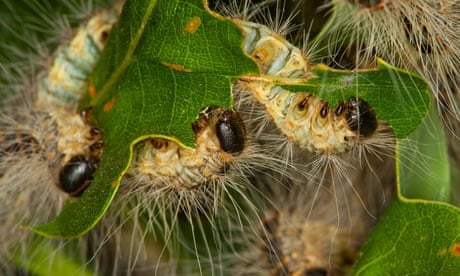The Australian International Food Security Research Centre recently announced the launch of a two-year, $800,000 initiative for sub-Saharan Africa. The project aims to help 10 countries become better equipped to combat plant biosecurity threats.
So, what is biosecurity?
Biosecurity broadly refers to ways of preventing or mitigating the threat of pests and diseases affecting animals, plants and humans. It can include food safety hazards, animal diseases and plant pests.
How does it affect food security?
"Agricultural performance is therefore key to growth and poverty reduction in Africa," says Michael Robinson, chief executive of the Plant Biosecurity Cooperative Research Centre. "But pests and diseases are the single biggest threat to the quality and safety of produce. Poor or fragmented capacity to control pests and diseases reduces productivity – through losses in production or storage – and is a significant obstacle to regional and international trade of African plant products."
What kind of hazards are producers dealing with?
Many. Earlier this year, the FAO urged countries to take action against fusarium wilt, also known as Panama disease, which devastates banana crops and recently spread from Asia to Africa. In 2003, Bactrocera invadens, a highly destructive Asian fruit fly pest, was detected in Kenya and has spread across the continent. An invasive pest of South American origin, Tuta absoluta – a tomato pest – was reported for the first time in Senegal in 2012, and is moving south through the continent.
"Maize lethal necrosis virus, another new example, is causing major crop losses in east Africa," says Dennis Rangi, executive director of international development at the UN-originated Centre for Agriculture and Biosciences International (Cabi). "It's a combination punch of two viruses, one that was here already and another that is newly arrived. Together, they cause a devastating disease. Efforts are already in progress by various international, regional and national partners in east Africa to develop management methods."
Does that mean plant biosecurity issues are worsening?
"It's definitely getting worse," says Rangi. "Pests are moving a lot more now, and the preparedness of countries is weak. We have to think about how best to address this issue in a faster way. African countries really want to trade with each other but these pests are becoming a barrier to that trade."
What's being done?
There are existing organisations and protocols to deal with biosecurity problems. But being a signatory to an agreement like the International Plant Protection Convention is one thing, and having the ability to fulfil the commitment is another. Shortfalls in biosecurity capacity can be an issue for individual smallholders, research organisations, and agencies. That lack of biosecurity capacity is often a problem in developing countries, including many within Africa, such as Burundi, Ethiopia, Kenya, Malawi, Mozambique and Rwanda, which are among the countries taking part in this project.
"Not all countries are able to meet their obligations under the convention, so this project will help them play their role in international efforts," says Rangi.
What exactly will the Plant Biosecurity Capacity Development Initiative be doing?
Activities are likely to include short-term placements of African specialists in relevant Australian institutions; workshops in Africa on the most pressing biosecurity issues; a mentoring programme and funding to help participants develop biosecurity action plans at national and regional level.
"There will also be a prioritisation workshop in Nairobi this October," says Robinson. "This will invite representatives from a number of African government plant protection agencies, African regional trade and international bodies, and the private sector, to ensure that activities in the programme match African needs."
Read more stories like this:
How to inspire a generation of farming entrepreneurs
Small-scale agriculture holds big promise for Africa
Milking it: dairy farmers in east Africa are earning more by learning more
Join the community of global development professionals and experts. Become a GDPN member to get more stories like this direct to your inbox

Comments (…)
Sign in or create your Guardian account to join the discussion